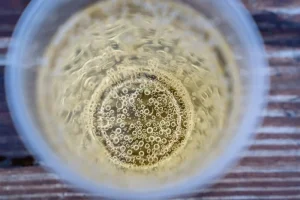
A bruise (also called ecchymosis) can bother us for days, either because they’re painful or we don’t know how they got there. Contact your GP for advice if you have a history of regular alcohol misuse. Treatments may include medications, surgery and chemotherapy. Petechiae may not be visible on dark skin, but a person may see them on areas with lower levels of melanin, such as does alcohol make you bruise easily the forearms. The symptoms will be present from birth and can affect babies and young children.

For questions regarding bruising, talk to a Marshfield Clinic Health System provider.
On people with darker skin tones, bruises can look purple, dark brown, or black. Sometimes, bruising after drinking occurs because of the fact that alcohol dilates the blood vessels. When blood vessels are dilated, you’re more likely to experience a bruise after bumping into something. This effect may explain why you’re waking up with bruises after drinking. There are several causes of bruises after drinking; some of these causes are not particularly serious, whereas others could point to a health problem. Perhaps the most common cause of bruising from alcohol is that alcohol acts as a vasodilator, making blood vessels larger.

All Resources, to help your Recovery

“Without these proteins, excessive bleeding and bruising can occur,” Dr. Johnston says. There are a number of medications and supplements that can increase your risk of bruising. Bruising easily is not a common symptom of low iron levels. Symptoms of iron deficiency typically include tiredness, fatigue, shortness of breath, paleness, and heart palpitations. You can help speed your recovery if you use a cushion or gel doughnut when you sit down because this takes the pressure off your tailbone.
Top doctors in ,

Stopping alcohol abruptly after long-term heavy drinking can also lead to alcohol withdrawal syndrome, which commonly manifests as symptoms like nausea and vomiting. But long-term and excessive alcohol consumption can lead to liver inflammation (liver hepatitis). Symptoms of this condition include appetite loss and weight loss.

What can cause bruising?
When you get an injury, blood may leak from the vessels (veins and capillaries) under your skin. The discoloration you see as a bruise on the surface of your skin is from blood that has pooled in or under your skin. On people with lighter skin tones, bruises may start out red or purple soon after the injury, then turn light brown, green, or yellow as they heal.
Health Challenges
- If you bruise easily, your inability to form clots may be the result of an underlying medical condition.
- At the time of injury, your nail may feel sore or tender, but the pressure that builds up under your nail as the blood pools can cause severe pain.
A deficiency is rare but can occur in newborns, who are typically given a vitamin K injection at birth to prevent a deficiency. “When your own immune system attacks blood cells or the actual blood vessels themselves, it increases the risk of bruising,” Dr. Kappel says. Rarely, an increase in bleeding and bruising may be a sign of leukemia.
How to Prevent Alcohol-induced Bruising?
- While certain conditions and medications can cause you to bruise more easily, you may still be able to prevent bruises.
- Even a vitamin B12 deficiency can contribute to low platelet counts.
- These signs can give an early indication of serious disorders, especially low blood volume or an infection.
Symptoms of anemia can be severe fatigue, dizziness, or shortness of breath, so watch out for these and see a doctor to get your iron levels tested if you think something’s up. FYI, people with heavy periods and those who are pregnant or breastfeeding are more prone to an iron deficiency, according to the American Society of Hematology. Even with a normal number of platelets, bleeding may occur if these cells don’t function properly. Platelet disorders interfere with the body’s ability to properly clot blood because there is a lack of proteins in the blood (clotting factors) that help platelets form blood clots. To find the cause of your bruising, your health care provider will likely do a physical exam and ask questions about your symptoms and medical history.
- Withdrawal side effects can be incredibly uncomfortable, which can lead a person to resume drinking to alleviate these side effects.
- Sometimes a laboratory test done for some other reason shows the person has a susceptibility to bleeding.
- “If an individual has a vitamin C deficiency, they might also experience bleeding gums, along with bruising and wounds that don’t heal or take a longer period of time to heal,” Dr. Johnston says.
- It also increases the risk of suicide, sexual assault, and homicide.
What Causes Bruising?
Once the deficient factor is identified, the person can be given a transfusion of that clotting Sobriety factor. Doctors examine the skin and mucous membranes (nose, mouth, and vagina) looking for signs of bleeding. A digital rectal examination is done to look for bleeding from the digestive tract. Doctors also look for signs, such as tenderness during movement and local swelling, that may indicate bleeding in deeper tissues. A person with bleeding inside the head may have confusion, a stiff neck, or neurologic abnormalities (such as headache, vision problems, or weakness). Bleeding from superficial sites, including skin and mucous membranes, suggests a problem with platelets or blood vessels.